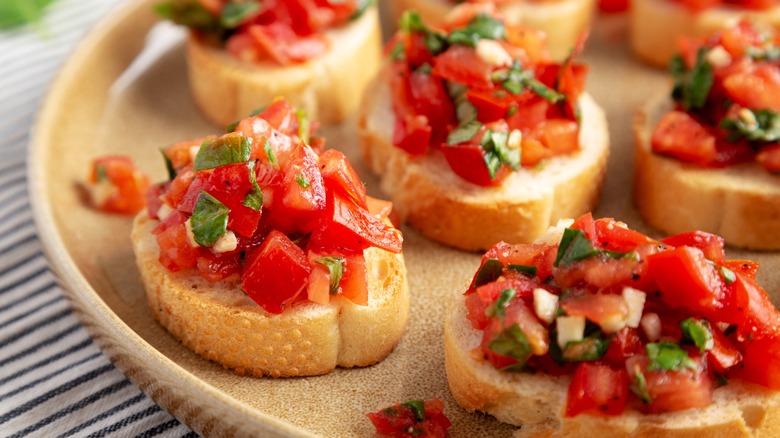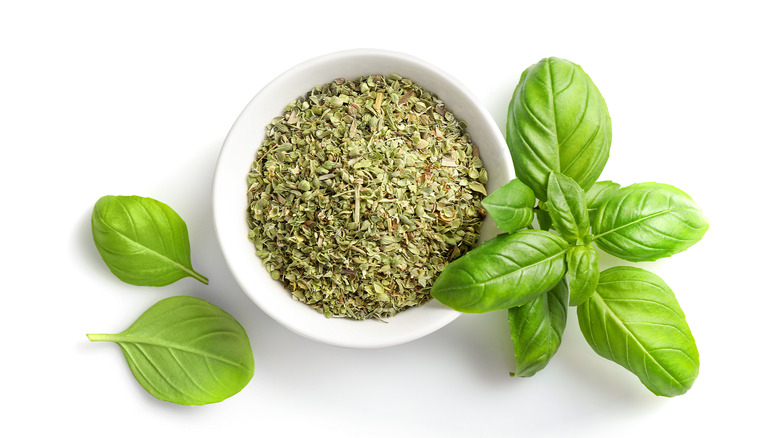The 3 Herbs To Try If You Want A Twist On Classic Bruschetta
Whether you're planning out apps for a soirée of fifty or an intimate dinner party with your closest friends, you can never go wrong with a tray of bruschetta. This dish, often pronounced "broo-skeh-tah" by Italian natives, is a classic appetizer that may appear fancy and sophisticated, but it's actually extremely easy to make. An Italian bruschetta recipe consists of fresh tomatoes that have been parboiled, diced, and mixed together with a handful of spices and aromatics. The mixture is then spooned over toasted baguette slices.
The key to this crowd-pleasing vegetarian appetizer is fresh herbs and spices. Chef and restaurateur Joe Isidori shared exclusive insight with Daily Meal on all the best herbs and spices you can use to give your bruschetta a twist. Isidori's restaurant Aurthur & Sons has locations in both New York City and Bridgehampton, serving up some of the most delicious, authentic Italian food in the city — including a delicious bruschetta, of course. According to the expert chef, fresh basil is an absolute must, but it isn't the only aromatic that will complement your appetizer: "Tarragon, cilantro, and dill are great fresh herbs to experiment with for a unique twist." Tarragon is slightly sweet and reminiscent of licorice, while cilantro has notes of pepper and lemon. Dill's fresh notes pair well with both basil and the sweetness of tarragon, as well as the slight citrus in cilantro. Combining all three creates an intense flavor that will elevate your bruschetta to new heights.
The rules are slightly different for dried herbs in bruschetta
Joe Isidori made sure to express how important the use of fresh herbs is when experimenting with various aromatics in your bruschetta. He told Daily Meal, "...Fresh herbs always deliver the best flavor." When we asked him about his top choices for dried herbs, he made it clear that it's best to stick to dried basil — at least for bruschetta, it seems wise to go for fresh herbs over dry.
Interestingly enough, dried herbs tend to have stronger flavors than fresh ones. During the dehydration process, the dried herbs become more concentrated with flavor and deliver a stronger taste than they would if they were fresh. That said, stronger taste doesn't always mean better, especially when it comes to a delicate balance of experimental flavor profiles. Even though dried herbs contain a more potent taste, fresh herbs provide a brightness and freshness that dried herbs lack. If you're preparing your bruschetta with dried herbs, less is more — resist the urge to add more than a few sprinkles of basil, or you run the risk of overpowering the simplistic dish.

